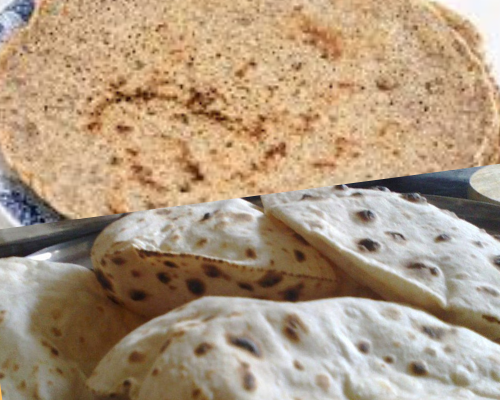Contents

Effective Immune Boosting Foods For Babies
When a child’s immunity matures, he or she frequently gets a cold or cough. Some meals can assist the body in fighting illnesses. As a result, it’s critical to understand “how to boost immunity in newborns.”
The Baby Immune System:
Let’s have a look at these foods and how you may incorporate them into your baby’s diet:
Breast milk:


Breast milk strengthens a baby’s immune system. Breastfeeding for the first six months is the most effective strategy to develop a baby’s immune system. Antibodies produced by the mother’s body are found in breast milk. These antibodies aid in the battle against infection until the baby’s immune system matures. Breast milk will be a vital source of nutrients for your kid until he or she stops drinking breast milk totally when you start giving solid meals to them.
Protein:
Proteins make up antibodies, which help your baby fight illnesses. In comparison to adults, babies require a higher percentage of protein in their whole diet. Every meal you give your baby should include a source of protein. Both vegetarian and non-vegetarian diets can provide enough protein for your infant.
The sources of protein are:


Peas, lentils, raw beans, and pulses are examples of pulses. also includes beef, seafood, and
Milk, yogurt, and cheese are examples of dairy products.
Nuts (well-cooked eggs) (crushed or powdered so that the baby is not at risk of getting stuck in the throat and give it only when the family has no history of allergies to dried fruit), Mushrooms, for example, that have been cooked thoroughly.
It’s important to remember that you shouldn’t offer your infant cow or buffalo milk until he’s one year old. Milk can be used in cooking, but it is best consumed as a beverage.
Probiotics:
Probiotic foods include beneficial bacteria that are alive and well. Probiotics keep harmful bacteria at bay. They also help to keep the baby’s immunity healthy by reducing the number of harmful germs that enter the bloodstream through the intestines. Yogurt and yogurt recipes like lassi, buttermilk, and raita are high in probiotics. Probiotics are especially helpful for your infant when he or she is teething.
Prebiotics:
Prebiotics feed the beneficial bacteria that fight infections in our bodies. As a result, incorporate probiotic meals as well as prebiotic foods into your baby’s diet.
Natural prebiotics can be found in the following foods:
banana
onion
Garlic
tomatoes
The puree of banana and yogurt is a healthy snack or meal that boosts immunity. Both probiotics and prebiotics are included.
Fiber:

Fiber is one of the finest prebiotic foods available. You can make bread or chapatis with whole-grain flour to add fiber to your baby’s diet. When making bread or chapatis, try to use whole grain flour instead of maida. Fruits are a good source of fiber as well. Fruit juice lacks fiber, thus it’s always better to feed the baby the whole fruit rather than the juice.

vitamin C:
Vitamin C supports a strong immune system. Many vitamin C sources have a sour flavor. As a result, the baby may take some time to begin consuming them. When these foods are introduced early in a baby’s diet, the baby will be more willing to try them and will become accustomed to eating healthful meals.

Good sources of vitamin C include:
Citrus fruits such as lemons, lime, and oranges
Berry like Amla, Neelbadri, Strawberry, Gooseberry
Cayenne pepper
Sweet potato
Guava
green cabbage
tomatoes
You can give puree of sweet potato and capsicum to your baby for vitamin C.
Iron:


Iron deficiency can impair a child’s immune system’s ability to operate, increasing the infant’s risk of infection and sickness.
Iron is required in greater quantities by babies than by adults. Meats, poultry, eggs, green leafy vegetables, mustard greens, fenugreek, beans, groundnuts, and other iron-rich foods should all be included in your diet.
To ensure your kid is getting enough iron, combine iron-rich foods with a vitamin C-rich diet.

Essential fatty acids:
Essential fatty acids are beneficial fats that aid the immune system in recognizing and combating illnesses.
Breastmilk provides an adequate amount of EFA for your infant. Make sure you’re getting enough necessary fatty acids in your diet.
Include extra sources of fatty acids in your baby’s weekly diet when you begin weaning and breastfeeding less frequently during the day.
Fatty acids rich meals include:
Oily fish such as sawdust, fish, Bhing fish, salmon, dry fruits
Pulses, peas, kidney beans, Mackerel, Salmon, Cod liver oil, Herring, Oysters, Sardines, Anchovies, Caviar, etc.

Fruits and vegetables:
Vitamin A, zinc, selenium, and magnesium should all be included in the baby’s diet for a completely healthy immune system.
Give the baby a healthy and diverse diet that includes fruits, vegetables, ground dry fruits, and dairy products to ensure that the baby gets all he or she needs.
Give your baby only one new meal at a time, and then wait five days before feeding another new meal. This will reveal whether or not the baby is allergic to any particular food.

Spices:
Antioxidant, anti-inflammatory, and antibacterial ingredients are included in some Indian spices, which can help your child’s immune system. Spices that are good for your baby’s immunity, such as turmeric, garlic, cloves, basil, saffron, and others, can be added to the baby’s diet in little amounts.





